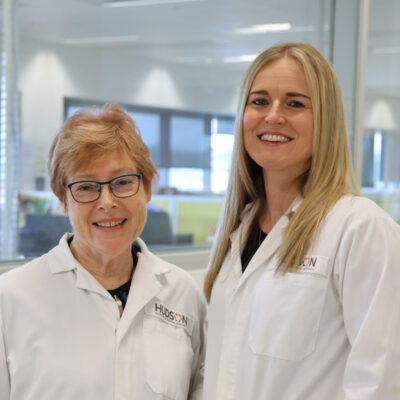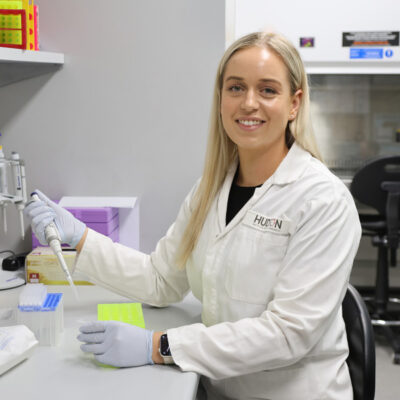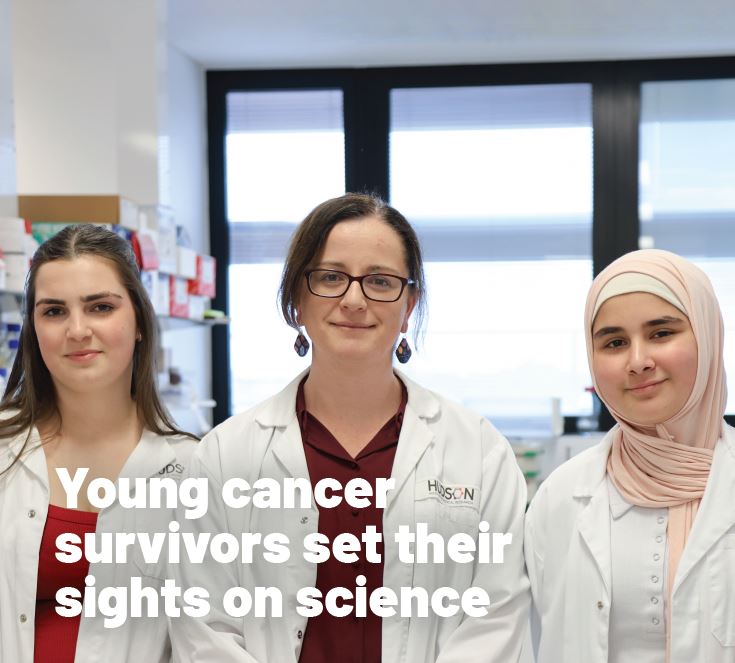Snoring in children needs medical attention
By Hudson Institute communications
Snoring has been shown to be as equally disruptive on children’s health and behaviour as obstructive sleep apnoea. For the 1.5 million Australian children who snore, even a little, this indicates their condition should not be viewed as harmless and unworthy of medical intervention. The good news is that when snoring is treated, children improve.

Disruption to breathing during sleep (termed sleep disordered breathing, or SDB) is common in children and ranges from snoring to obstructive sleep apnoea. The conditions are typically due to enlarged tonsils or adenoids which can be treated. In a study published in The Journal of Physiology, Dr Lisa Walter and Professor Rosemary Horne have shown for the first time that both snoring and obstructive sleep apnoea disrupt a child’s ability to control his or her own heart rate. When this occurs, it reduces oxygen levels to the brain and results in problems such as reduced concentration.
While snoring has been linked to these issues previously, the reasons why have been unclear.
“When a child stops breathing during sleep, this causes a fall in oxygen levels to the brain and disruption to sleep when the child resumes breathing, which, in turn, affects concentration and behaviour.
“However, children who just snore don’t stop breathing completely or show disrupted sleep patterns, but their concentration and behaviour is impacted. We have shown how this may happen,” Prof Horne said.
“We have shown that the autonomic nervous system, which controls heart rate, isn’t working as well in children who snore to the same degree as in those who have obstructive sleep apnoea. The relationship between heart rate control and brain oxygen levels is also disrupted, and this may cause the disruption to concentration and behavioural problems.”
Snoring and sleep apnoea facts
- All severities of SDB are associated with adverse neurocognitive, behavioural and cardiovascular outcomes, including elevated blood pressure.
- SDB affects between 4 to 11 per cent of children.
Easily treatable
“We’ve shown when a child is treated for snoring or sleep apnoea, their blood pressure is lowered and their concentration improves,” Prof Horne said.
Collaborator | Monash Children’s Hospital
Funder | NHMRC project grant
Contact us
Hudson Institute communications
t: + 61 3 8572 2697
e: communications@hudson.org.au
About Hudson Institute
Hudson Institute’ s research programs deliver in three areas of medical need – inflammation, cancer, women’s and newborn health. More
Hudson News
Get the inside view on discoveries and patient stories
“Thank you Hudson Institute researchers. Your work brings such hope to all women with ovarian cancer knowing that potentially women in the future won't have to go through what we have!”






